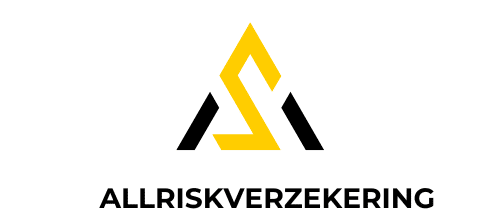As an estate agent or property developer in the UK, you understand the burgeoning popularity of industrial loft conversions. These spaces, which transform old warehouses and office buildings into residential homes or business workspaces, offer a unique blend of aesthetic charm and practical functionality. The challenge, however, is marketing these conversions effectively to attract potential buyers or tenants. This article is here to guide you on how to successfully market and sell converted industrial loft spaces in UK cities, particularly in London.
Understanding the Appeal of Loft Conversions
Before you can successfully market converted industrial loft spaces, it’s crucial to comprehend their unique appeal to potential buyers or tenants. Loft conversion is a popular trend in urban design, for both residential homes and business workspaces. These spaces strike a balance between modern luxury and rustic charm, making them an attractive option for a diverse demographic.
Topic to read : What Are the Economic and Social Benefits of Developing Real Estate Around UK Cycling Infrastructure?
Lofts are often characterised by their open floor plans, high ceilings, and exposed brick or beams, which offer a sense of spaciousness and flexibility not often found in conventional properties. Additionally, owing to their origins as old warehouses or offices, these conversions are typically situated in prime locations within the city, close to transport links and amenities.
Tailoring Your Marketing to Your Target Audience
In marketing converted industrial loft spaces, your efforts must be geared towards the right audience. Loft conversions often appeal to young professionals, creatives, and small businesses looking for unique, stylish, and functional spaces within the city.
Have you seen this : How to Utilize Solar Shading Techniques in Building Design to Improve Energy Efficiency in Real Estate?
Your marketing material should highlight the features that appeal to this demographic. For example, if you’re advertising a loft conversion in a former warehouse building, emphasise the space’s industrial history, open floor plan, and its unique blend of rustic and modern elements. High-quality, professional photographs that showcase the conversion’s unique features can help potential buyers or tenants visualise themselves in the space.
Showcasing the Local Area
Besides the property itself, your marketing should also highlight the local area. As previously mentioned, one of the primary appeals of loft conversions is their central location within the city. Make sure to feature the amenities and attractions in the vicinity, such as restaurants, shops, entertainment venues, and transport links.
For example, if your loft conversion is in London, you could mention its proximity to famous landmarks, thriving markets, or the city’s financial district. This not only gives potential buyers a sense of the lifestyle they can expect in the area but also underscores the property’s potential for future value growth.
Harnessing Digital Marketing and Social Media
In the digital age, your marketing approach for loft conversions will benefit greatly from a robust online presence. Most property searches begin online, so it’s crucial that your listings are easily discoverable and appealing.
A professional, user-friendly website is a must. This should include detailed listings with high-quality photos, a blog where you post useful articles and updates, and customer testimonials to build trust. Moreover, utilise social media platforms like Instagram, Facebook, and Twitter to showcase your properties and engage with potential clients.
Collaborating with Local Architects and Designers
Finally, consider building relationships with local architects and designers who specialise in loft conversions. Their professional insights and advice can help enhance the appeal of your property listings, manifesting in superior design elements that potential buyers or tenants will appreciate.
For instance, an architect can provide valuable input on how to maximise the space within a loft conversion, while a designer can offer tips on how to accentuate the property’s unique features. You could even work with them on staging the property for viewings, creating a stylish, inviting space that helps potential buyers or tenants envision how they could utilise the space.
In conclusion, marketing converted industrial loft spaces in UK cities involves understanding the property’s unique appeal, tailoring your marketing to your target audience, showcasing the local area, utilising digital marketing strategies, and collaborating with local professionals. With these strategies, you’ll be well-equipped to attract potential buyers or tenants and secure successful conversions.
Advanced Technologies and Loft Spaces
The rapid advancement of technology in the 21st century has changed how we live and work. This evolution is reflected in the demand for office and residential spaces that accommodate these changes. This is where loft conversions come in. The open-plan nature of loft spaces, combined with their industrial appeal, makes them the perfect backdrop for modern living and working.
Imagine a loft space in an old factory, with high ceilings and exposed brickwork, converted into a tech startup’s office. Or a former warehouse, now a stylish serviced apartment with original features like steel beams and large windows. These are the types of transformations that make converted industrial loft spaces so appealing.
Moreover, advanced technologies such as virtual reality (VR) and augmented reality (AR) have a significant role in marketing such spaces. Potential buyers or tenants can take a virtual tour of the property, getting a feel for the space without physically being there. This not only saves time but also increases the chances of attracting international clients.
Also, you can use technology to showcase your loft conversions on various online platforms. For instance, drone footage can give potential buyers an aerial view of the property and its surroundings, offering a unique perspective that traditional photography can’t provide.
Legal Aspects of Loft Conversions
When it comes to converting industrial spaces into loft apartments or offices, it’s crucial to understand the legal aspects involved. Some buildings may require planning permission before they can be converted, while others may be subject to certain building regulations. It’s essential to ensure that all conversions comply with the law and that any necessary permissions or permits are obtained in advance.
In addition to compliance, loft conversions should also take into consideration the safety of the residents or workers. For instance, a former warehouse might have structural elements that need reinforcing, or a loft conversion in an old factory may require a thorough inspection for hazardous materials.
When marketing your loft spaces, make sure to highlight the fact that all legal aspects have been considered and addressed. This will give potential buyers or tenants peace of mind, knowing that their health and safety are a priority.
In conclusion, successfully marketing converted industrial loft spaces in UK cities involves a comprehensive understanding of the key benefits of these spaces, the technologies that can enhance their appeal, and the legal requirements that must be met. By focusing on these areas and tailoring your marketing strategies to your target audience, you can create a compelling narrative that attracts potential buyers or tenants and positions your loft conversions as desirable, modern living and working spaces. Remember, the key to successful marketing is understanding your product and audience, and using that knowledge to create a compelling story.
















